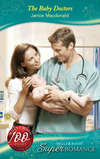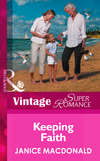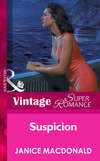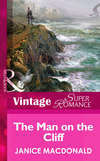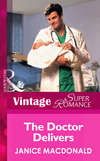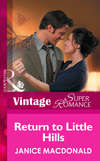Buch lesen: «Along Came Zoe»
“How would you feel if this was your daughter?”
Caught off guard by the question, Phillip felt a moment of panic. Who was this woman and what did she want?
“I didn’t catch your name,” he finally said.
“I didn’t throw it to you,” she replied. “Anyway, my name isn’t important. I’m here about the young girl who died because there was no neurosurgeon available to attend to her. What I want to understand,” she continued, “is this. While Jenny was riding around in the ambulance, what exactly prevented someone—anyone—from coming in to save her? You, for example, Dr. Neurosurgeon.”
Phillip said nothing.
“As if it isn’t awful enough to lose a child,” the woman added. “To know that the child didn’t need to die…” She glared at him. “You want to know my name? You can call me Concerned. Frustrated. Mad as Hell.”
The arrival of a security guard, apparently summoned by his receptionist, saved Phillip from having to respond.
“Brilliant solution,” the woman said as a blue-uniformed guard who probably outweighed her by two hundred pounds or so took her arm. “But you haven’t heard the last from me.”
Dear Reader,
I’ve often thought—perhaps not an original idea—that writing a book is somewhat akin to giving birth. There is the first germ of an idea that grows and develops and ultimately takes on a life of its own. Along Came Zoe, my sixth offspring, was one of those particularly difficult births, the kind where you groan, “Oh, never again.”
Fortunately, the joy of creation—books and babies alike—quickly dissolves the pain, leaving only a sense of wonder at what you’ve produced. I’m tempted here to carry on the analogy and talk about how the wonder only continues until your miraculous offspring gets its first report card—or review—but I think I’ve followed this thought far enough.
I hope you enjoy Along Came Zoe. I’d love to hear from you. Please visit my Web site at janicemacdonald.com, or write to me at PMB101, 136 E. 8th Street, Port Angeles, WA 98362.
Best wishes,
Janice Macdonald
Along Came Zoe
Janice Macdonald

To my editor, Zilla Soriano, for her patience and
understanding during the difficult times I had while writing
this book, and for her unfailing wisdom and guidance. I feel
very fortunate to have the privilege of working with her.
CONTENTS
CHAPTER ONE
CHAPTER TWO
CHAPTER THREE
CHAPTER FOUR
CHAPTER FIVE
CHAPTER SIX
CHAPTER SEVEN
CHAPTER EIGHT
CHAPTER NINE
CHAPTER TEN
CHAPTER ELEVEN
CHAPTER TWELVE
CHAPTER THIRTEEN
CHAPTER FOURTEEN
CHAPTER FIFTEEN
CHAPTER SIXTEEN
CHAPTER SEVENTEEN
CHAPTER EIGHTEEN
CHAPTER NINETEEN
CHAPTER TWENTY
CHAPTER ONE
JENNY DIXON WAS SIXTEEN.
Jenny Dixon was a cheerleader.
Jenny Dixon was driving home from practice when her Toyota was broadsided by a drunk driver.
Jenny Dixon is dead.
Dr. Phillip Barry, pulling into the underground garage of his Seacliff apartment, was stricken suddenly with exhaustion. He parked the car in its allotted space, climbed the stairs to the front door, unlocked it and threw himself on the sofa, where he fell asleep almost instantly.
Jenny Dixon is dead.
He sat up with a start, shook his head. The phone was ringing.
“Phillip?” His ex-wife, Deanna. “Were you sleeping?”
“No…yes.” He dug his knuckles into his eyes. “I’m fine. What’s up?”
“I was calling to talk about Molly. You said you’d have her this weekend, remember?” A pause. “Phillip. Are you okay? I ran into your brother at the market and he said you’ve been looking like hell lately—”
“I’m fine.” He tried to recall exactly when he’d agreed that Molly, their sixteen-year-old daughter, would spend the weekend; not that he didn’t want her, but things seemed to be getting away from him lately. Nothing big, nothing outside of the O.R., thank God, just conversations, appointments, things like that. He leaned his head against the couch back and closed his eyes. “So what’s the deal? I pick up Molly, or will you bring—”
“Phillip, we’ve already talked about this…I’m concerned about you. Joe is, too. It’s that damn…that Dixon case, isn’t it? Phillip, you’re human, for God’s sake. You go on burning the candle at both ends long enough and something’s going to give. Anyway, why should you blame yourself? I don’t see Stu going aroung wringing his hands—everyone deserves some time off once in a while, when was the last time—”
“So do you want me to pick up Molly?”
“Okay, you’re not going to listen to me, I might as well save my breath. I just want you to think about something. Molly needed you. Needs you. This girl’s death wasn’t your fault. It wasn’t your fault a bus overturned. It wasn’t your fault the paramedics had to drive her around…”
With Deanna’s voice in his ear, Phillip got up from the couch and wandered over to the opened French doors. Straight ahead, the Pacific stretched endlessly. On either side he could see, in his peripheral vision, the balconies of his neighbors. Smoke from someone’s grill wafted briefly into the room.
“…I don’t mean to sound callous or anything,” Deanna was saying, “but instead of dwelling on the what-ifs, why don’t you just think about what it means to Molly that you’re available once in a while. Like her birthday, for example…”
Phillip came back inside, slid the doors shut and returned to the couch. The headline in that morning’s Tribune had asked, Did Jenny Have To Die? Maybe not, he was forced to admit. If he and Stu, his partner, hadn’t decided just weeks before Jenny Dixon’s accident to suspend emergency neurosurgical services to Seacliff’s trauma center…if a tourist bus hadn’t tumbled down a mountainous ravine just east of the city, swamping other local centers with injured passengers…if Jenny had been immediately airlifted instead of being driven around in an ambulance… If, if, if. An endless wheel of ifs circling unmercifully through his brain.
AS SOON AS SHE HEARD the morning weather report announcing a hurricane in the Gulf of Mexico, Zoe McCann knew that the winds traveling up from Baja wouldn’t be the day’s only storm. The announcer’s voice on the clock radio—specifically his mention of the words historic surf—had woken her from sleep.
Adrenaline coursing through her body, Zoe pulled on jeans and grabbed a flannel shirt from the pile of clean laundry that she’d intended to put away the night before and ran, barefoot, downstairs to the kitchen to grab her keys.
“That bastard,” she muttered to herself as she climbed into her truck. “I swear to God, I’ll kill him.”
Ten minutes later—it would have been five but for the morning commuter traffic—she drove her pickup south on Pacific Coast Highway, the car radio blaring something unintelligible. Jeez. She punched buttons, searching for something other than the punk rock that always screamed from the speakers after her son Brett had used the truck.
“…and the continued fallout from the tragic death of a local teenager has prompted a Seacliff city councilman to propose financial incentives ranging from five hundred to one thousand dollars or more a day to lure neurosurgeons back into providing on-call services.”
Financial rewards to lure neurosurgeons.
Disgusted, Zoe snapped off the radio. Money always took care of everything. A thousand dollars in Dr. Phillip Barry’s hot little hand and Jenny Dixon might be alive today.
She glanced out through the passenger window to the ocean where great feathery sprays of foam were shooting into the air. She’d lived her whole life in California, but she never took the ocean for granted. Whether it was that weird churning green it sometimes turned in winter, or the pale blue silk of early summer, the water inspired her. However cranky she might feel, twenty minutes or so watching the waves generally did the trick. Except, of course, if she happened to notice that another small beach cottage along the cliffs had been razed to make room for some hideous megamansion that blocked views for everyone except the self-absorbed morons who lived in them.
Like Dr. Phillip Barry.
The car ahead had Nebraska plates and the driver had slowed to a crawl while everyone in the vehicle rubbernecked at the view. Zoe moved them along with two quick bleeps on the horn. Fingers tapping the steering wheel, she drove past Diamond Beach—where distant black figures out in the breaking waves might, to the uninitiated, be frolicking dolphins—finally slowing down as she reached the bluffs.
The line of parked pickup trucks and battered cars with oxidized paint jobs started halfway up the hill and ended just opposite the power plant on the other side of the street.
Zoe parked at the bottom of the hill, turned off the ignition and drew a deep breath. “Please,” she prayed, imagining Denny’s goofy grin, “just this once let him surprise me by not being a selfish, irresponsible idiot whose mental development was arrested sometime around the age of seventeen.”
She grabbed the key from the ignition, slid out of the truck and walked briskly along the line of vehicles. Breeze from the ocean tossed her hair around, blowing hunks of it across her face. She glanced at her reflection in the passenger window of a parked car and wished she hadn’t. On its rare good days, her hair had this long, curly, just-fallen-out-of-bed look about it; the rest of the time it was a dense, kinky uncombable mess that she usually controlled with combs and scrunchies or whatever else was on hand. Today, it looked vaguely like a collie’s coat.
Her ex-husband’s battered red pickup truck, surfboard sticking up like a dorsal fin from the truck bed, was right where she knew it would be. And so was her ex-husband. Burly—and that was charitable—wearing black-and-gray-flowered Bermudas and a white tank top, his feet encased in flip-flops. A pair of binoculars in hand, he gazed out at the water.
She took another breath. Everything about Denny McCann, from the black tufts of hair on his big toes to his stupid goatee, annoyed Zoe, but what was sending her out of the stratosphere right now was the confirmation of her suspicion. Standing there beside his father—both of them towering above her—was her sixteen-year-old son, Brett, a towel wrapped modestly around his waist as he shimmied into his black rubber wet suit. Neither of them saw her coming.
She noticed Denny had shaved his head, a pathetic attempt to cover a bald spot, but, to give him credit, better than a toupee or a comb-over. He had set his binoculars on the cab of the truck and was tugging at the zipper of Brett’s suit. Brett, adolescent skinny, had his back to her.
She tapped her son on the shoulder.
“School?” she inquired, and he whirled around, eyes wide.
“Mom, just let me explain, okay?”
“Get in the car,” she said. “Now.”
“I’ll handle this, son.” Denny eyed Zoe cautiously, as one might a rabid dog. “You gotta understand—”
“No, I don’t gotta understand anything.” She jerked her head in the direction of the parked cars. “In the car, Brett. Now.”
“But Mom, the surf is, like, historic. Tell her, Dad.” He looked at his father. “There haven’t been waves this big since—”
“In the car.” Zoe stared him down until he headed, slump shouldered and sighing noisily, toward her car. The sight of her son’s skinny brown back, knobby spine poking between the unzipped sides of the wet suit, swelled her heart. Brett lived to surf, a passion shared by his father. Slight difference though between a sixteen-year-old kid living for monster waves and a forty-year-old delayed adolescent whose failure to hold a steady job could be largely attributed to his practice of calling in sick whenever surfing conditions warranted it.
“This is the last time he stays with you on a school night,” she told his father. “Got it?”
Denny had his arms folded across his chest and a look on his face that said he’d be damned if he’d let his nutcase of an ex-wife dictate the way things were going to go. Still, his eyes lingered long enough on the front of her shirt that she thought maybe a breast had broken free. She was going through a Mother Earth phase, all hips and boobs—a side effect of some recent experimentation with bread baking and, of course, tasting. A quick glance confirmed nothing more revealing than a bunch of cleavage and some strained buttons, but it was vintage Denny to argue with her and ogle at the same time.
“Don’t go giving me a bunch of crap, Zoe,” he was saying. “I was going to take him to school. He said there was nothing much going on this morning, so I figured it was no big deal if he missed an hour or two.”
“Well, you figured wrong.” Zoe stabbed her index finger at his chest. “If you ever pull this again…if you ever keep him out of school—I don’t care if it’s for five minutes—without clearing it with me first I will personally shove that goddamned surfboard down your throat—and don’t think I couldn’t do it.”
“You need to get a life—”
“And you need to send me last month’s child-support check,” she shot back. “When can I expect it?”
“If you took him out of that goddamned snob school, you wouldn’t always be short of money.”
Zoe cupped a hand to her ear. “I can expect it when?”
“What the hell’s wrong with public schools?”
“I’m sorry.” Zoe smacked the side of her head. “My hearing must be going. You said you’re going to write me a check right now?”
“Damn it, Zoe.” He opened the passenger door and ducked his head inside. “You’re not the only one with expenses.”
“Need a pen?”
“Go to hell.” He fished a checkbook from the glove compartment and made a big performance out of writing the amount. “And while we’re talking about this, don’t think I’m footing the bill for some Ivy League university. No reason he can’t go to community college like I did.” He signed his name with a flourish, and held out the check. “Brett tell you about his girlfriend?”
Zoe took the check. “He doesn’t have a girlfriend.”
Denny smirked. “Like he’s going to tell mommy anyway.” Gotcha, his expression said. “He’s not gonna tell you nothing.”
“Well, that’s good news,” Zoe said. “That means he’ll be telling me something, right?”
The smirk faded. “Shut the hell up, Zoe. If you were half as damn smart as you think you are, you wouldn’t be selling vegetables.”
Zoe smiled. “If I were half as damn smart as I think I am, I obviously wouldn’t have married you in the first place.” She watched the color creep up the side of his neck. She could almost hear his brain whirring as he struggled to regain the upper hand— Let’s see, how can I really zap her?
“Me and him had a little talk last night,” he finally said. “Man to man, like. ‘Gotta use a condom,’ I told him, ‘or some girl’s going to trap you just like your mom trapped me.’”
BRETT’S MUFFIN POPPED out of the toaster and he spread peanut butter on it. His mom and Rhea were in the kitchen making soup and reading out loud from a cookbook that was propped up against a clay pot he’d made in some art class when he was a little kid. Rhea had been there when he got home from school.
“I don’t see why you couldn’t make this with fresh lima beans,” his mom was saying to Rhea. “Let’s just improvise, okay. I hate following recipes.”
Rhea laughed and winked at him. “Rules, recipes…your mom marches to her own drummer,” she said.
“Yeah,” Brett agreed. Whatever that meant. He screwed the lid back on the peanut butter, put the knife in the sink. His mom was wearing a long yellow skirt—that he’d heard her tell Rhea she’d made out of a tablecloth—and a tight black sweater and her hair was tied up with this Indian scarf. He knew what it was because she had Indian scarves pinned up all over her bedroom, on the ceiling and walls, along with dried roses and big velvet pillows everywhere. Old black-and-white pictures all over the place, lamps with scarves all over them, which drove his grandma crazy because she said it was a fire hazard and one of these days his mom was going to set the house on fire. His grandma said his mom’s room looked like a Gypsy caravan.
Everything his mom did drove his grandma crazy, but his mom said that wasn’t her problem. His mom was kinda different, the way she dressed and acted and everything, but he was used to it—except like this morning when she freaked out about him going surfing. He was still kinda mad about the way she made him feel like some stupid kid in front of his dad, but when his mom got some idea in her head, forget about anything else.
Rhea looked pretty much like everyone else’s mom. Sweats and jeans and normal hair. Rhea was Jenny’s mom. Jenny got hit on her way home from practice by a drunk driver and she died. It was about the worst thing that ever happened in his life. Afterward everyone started talking about how it shouldn’t have happened and taking sides not just about the drunk driver, although everyone including his mom got plently fired up about that, but how it shouldn’t be that kids died because they couldn’t get taken care of and everything. It happened, like about six months ago, but it seemed like there was always more stuff about it on TV or something.
He still couldn’t believe Jenny wasn’t just going to show up one day, like she’d played some joke on them or something. He’d known Jenny practically forever. She’d been like his sister. Well, except she was always claiming he’d kissed her when they were in nursery school. Right. Girls always claimed they remembered dumb-ass stuff like that, but Jenny was cool. They’d been better friends when he was still going to the old high school. She said he was stuck-up now, which even she knew was a bunch of bull because he couldn’t stand stupid Country Day Academy.
Anyway, if it wasn’t Rhea in the kitchen with his mom, it would be someone else. People were always coming over to his house. Friends his mom hadn’t seen for years who just happened to stop by, neighbors he didn’t know but who knew his mom. Some crazy old woman she’d met at the grocery store who had been trying to pay for her stuff with play money. His mom ended up paying for the old lady’s stuff, then bringing her here till some relative could come and take her back home.
He and his mom lived in this big house that his dad said his mom should sell and buy a condominium or something, and it seemed like there was always someone sleeping in the guest bedroom until they got their act together. His mom was pretty cool that way, she’d leave them to themselves—sometimes he wished she’d do that with him, instead of making him feel like some bug under a microscope—listen to them, if they wanted to talk, make them food.
Everyone said his mom had a big heart. For everything. People. Dogs or cats that just showed up one day. A sheep. No kidding. Last year they’d gone to the county fair and she’d bought this sheep because some guy said it was going to be dog food. It wasn’t even like a cute little lamb or anything. It was this huge, woolly pillow-shaped thing that his mom said looked like Tony Bennett, whoever that was.
She called it Svetlana and sang this dumb song to it. “I left my heart,” she’d go, “in Baabaa Frisco.” And then she’d crack up at how funny she was and all her friends would be laughing, too. Except for his dad, who called his mom a head case, everyone thought his mom was really cool. People were always calling her a character and he guessed she was a pretty good mom, except that sometimes she was also kind of embarrassing the way she just said whatever she thought.
“So, Brett—” Rhea scooped onions up in both hands and dropped them into the frying pan “—are you beating the girls off with sticks?”
“He’d better be,” his mom said. “If he isn’t, I will.”
“Omigod, Zoe.” Rhea was looking at the little TV on the kitchen counter. “Look. It’s Phillip Barry. He’s—”
“Shh.” His mom flapped her hands at Rhea. “Listen.”
Brett watched the screen. Dr. Barry wasn’t really doing anything, just walking along some corridor, dressed in blue scrubs, like maybe he’d just come from surgery. His arms and face were tanned and he had bright blue eyes. It was weird knowing who he was because he looked kinda like an actor on ER or something. Now he was taking off this blue paper cap and he had brown hair that was cut way, way short, and some gray in the front. His mom had this thing about Phillip Barry. She knew him from when they were both little kids and she said the whole family was a bunch of snobs. He was some big-shot brain surgeon at Seacliff, and his mom claimed that if he’d been there to take care of Jenny, she wouldn’t have died. He had this truly weird daughter, Molly, who was in his class at Country Day and was always following him around and saying dumb things.
“Taking care of high-risk patients requires you to have a bit of an ego…” Dr. Barry was saying.
“No kidding,” his mom said, all sarcastic, like, duh.
“Mom, when’s dinner?”
“Uno momento, sweetie.”
His mom was still watching Dr. Barry. She had this vegetable in one hand, like a carrot but whitish-brown, and a knife in the other one.
“Idiot, jerk—”
“Shh,” Rhea put her finger over her mouth.
“I have a hot date with a cool babe,” Brett said, just to shake things up. Like what did he care about what Molly Barry’s dad was saying? “Be back around midnight.”
“What?” His mom swiveled around to look at him. “I’ll give you midnight.” She was trying not to laugh. “Go do your homework. Dinner will be ready when you’re through.”
“What are we having?”
“Lima bean and summer squash soup.” She was watching TV again. “Go. I’ll call you when it’s ready.”
Yech. Like he’d want to know.
Upstairs, he lay on the bed. His mom knew that Dr. Barry’s daughter Molly went to Country Day. What she didn’t know was how weird Molly was. Like how she was always following him around and saying she was his girlfriend and if he didn’t start liking her she was going to kill herself.
“ON MANY DAYS, by the time the staff arrives at the office,” the TV announcer was saying, “Dr. Barry and his partner have already performed two surgeries and started rounds at the hospital.”
“It’s hectic, no question about it.” Barry was sitting behind a desk now. “When I first decided to go into neurosurgery, someone I greatly respected said to me, “If you’re going to be a true professional, not just do the job, it’s really difficult to be a decent husband or a father, and you certainly can’t do anything else, like have any sort of social life. It’s a real struggle.”
“My heart bleeds.” Zoe poured away the water the lima beans had been soaking in, and melted butter in the bottom of a pan. “Turn it off if you want,” she told Rhea, now feeling kind of insensitive that she hadn’t turned it off as soon as Phillip Barry’s face appeared on the screen. That morning’s headline still haunted her. Did Jenny Have To Die? Imagine picking up the paper to read that. Like it’s not devastating enough to lose your child, but then you find out that she’s dead because some doctor wants to play golf. She watched as the onions turned transparent. Okay, she didn’t know for a fact that Phillip Barry wanted to play golf, but what doctor didn’t?
“Hey…” Rhea reached over Zoe’s shoulder to turn down the flame. “If you’re going to obsess, I’m gonna pack up my tent and leave.”
“I’m not obsessing.”
“You’ve burned the onions, you pulverized the carrots. Jenny was my daughter, Zoe. If I’m not angry—”
“Okay, okay.” Zoe shook her head. “I’m not angry.”
“I said if you’re going to obsess.”
“I’m not obsessing.”
“Yes, you are.”
“What am I obsessing about?”
“It happened, Zoe.” Her voice cracked. “Look, I know you wouldn’t purposely do anything to hurt me, but I’m trying very hard to deal with everything and your anger doesn’t exactly help, okay? I mean, God, it’s difficult enough—”
“Rhee, I’m so sorry.” Zoe set down the spoon she’d been using and wrapped her arms around Rhea. “I’m sorry, really, I just get on these rampages and…look at me. What can I do?”
Rhea gave a weary smile and shook her head. “Nothing. Just go on being Zoe, but…maybe a teensy bit less angry at the world?”
Later after Rhea left, Zoe cleaned the kitchen and set out cereal and bowls for Brett’s breakfast tomorrow. It was hard not to get angry. She and Rhea had gone over the whole thing so many times. Cried together over innumerable cups of herbal tea, wept over bowls of flax muffin mix, talked themselves hoarse into the wee hours. Rhea, Zoe could tell, was moving toward an acceptance of Jenny’s death that she personally couldn’t master. She was angry, furious. Did Jenny Have To Die? That was the title of the front page article in the paper today. No, she wanted to scream. Not if Dr. Phillip Barry had been there to do what doctors are supposed to do. Reason told her that this was flawed, simplistic thinking, but reason was no match for furious, impotent anger.
Der kostenlose Auszug ist beendet.











